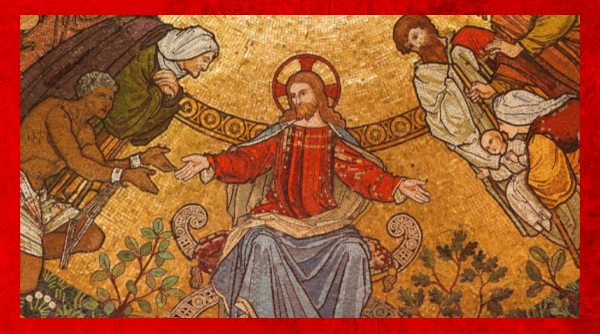Whose voice? Discernment and God’s will

What is holy?
Most of us is aware of the Church’s ‘universal call to holiness’ for all Her members including us! But what is holy? Holiness is seen by our response to the Holy Spirit allowing His gifts and virtues infused in our soul to perfect us, and evidenced by the fruits which flow from that use. It’s demonstrated by our own indifference to what we want and desire. It’s modeled by behavior that is seen in the lives of the saints and holy ones of history as well as those who surround us today. Their actions and attitudes manifest from their relationship with God.
Our lives can be filled with devotions, spiritual reading, and Catholic entertainment that help us to grow. We keep statues, pictures, and other artifacts of our faith all around us. We desire to do good things in God’s name. But a deeper look will uncover areas of our lives that are lived without God’s substance, without His direction and without His spirit using us as His instrument.
The gifts, beyond the virtues that we receive when we are baptized, are those supernatural instincts which lead us to practice the virtues that are incumbent on us as believers. Virtues are the powers. Gifts are the instincts to use those powers. Thus, for example, our bodies periodically need food. What if we did not have a corresponding instinct of hunger? Clear? We’d starve. The gifts correspond then to the natural instincts urging us, impelling us, from within to want to do, to be hungry for the things of God (Ven. John Hardon SJ)
These ‘supernatural instincts’ come from within, initiated by the Holy Spirit. This is easily confused with our own psychological reasoning, particularly when we desire a certain outcome or want to make a purchase. The saints, in their private conversations with God, acknowledged and relinquished to Him their own ideas of their spouse’s faults and how he/she should change. They learned to recognize and cease controlling the lives of those under their care (whether at home, in the workplace, or in religious communities). They only desired belongings and material items that helped them serve God.
“When you live in the providence of God, what seems a disruption is merely the correction of our means to His ends.” (Fr. Matthew Kauth, p. 185, emphasis added)
In contrast, our broken nature drives us to use God as a means to our end goal. We figure out how our spouse, parent, child, or sibling needs to change and then in prayer, when our psyche formulates solutions to ‘fix them’, we deem it to be from God or our Blessed Mother. As for material items, we think of all sorts of good uses for products and then believe Jesus is leading us to buy things we do not really need. We fall into the trap of using Jesus and Mary to justify fulfilling our desires. There isn’t anything wrong with buying candles if needed. But that is different from wanting a candle, then deeming it ok by imagining God ordained it so. The lack of prudence in the decision leads to the using of God to achieve our ends. And that’s how Satan works: false reason and virtue-opposite.
God isn’t a means to an end. He is the Means and the End. He gives us Jesus and the Holy Spirit as the means to achieve His end goal, which is our salvation. How often we use tools like prayers and devotions to achieve what we’ve decided needs to be. In a world gone mad, it gives the false sense of control; ability to make a difference. Meanwhile, 2000 years of saints teach us the beautiful freedom experienced when accepting the truth of our lowliness and letting God truly take care of everything. No take-backs; no saying ‘I’ve given it up to God’ then turning around and creating a gameplan that I deem ordained by Him simply because it ‘came to me in prayer’—St. Ignatius saw this precisely for what it is: definitely not God’s will.
Realizing that life is lived concretely, it is most important for us to be able to recognize the one impulse from the other. In other words, to be able to distinguish inspiration from instigation … There are certain conditions that God requires for our being able to well, recognize anything in the spiritual life. How often both the Old and the New Testaments talk about being properly disposed in heart. Here then, this attitude of will, which I am going to describe, is the atmosphere or situation in which I must either be, and if I am not into which I must predispose myself, in order that I might have the grace to be able to distinguish. … we are not just talking about a desire to do God’s will, but to make absolutely certain that our attitude is honest, sincere, real, authentic, and genuine. (Ven. John Hardon, SJ)
So our own psyche can fool us in prayer. Examining the prayer experience itself will uncover the feelings experienced when thoughts came to mind. Was I tired? Emotionally distraught? Mind running out of control? When these thoughts came to me, did it bring intellectual satisfaction or a true sense of interior peace? Why is it so important to me to have an answer, a game plan, an action to take?
Having examined the ‘why’s (why I want to believe my own thoughts are His e.g. I want to change the situation…I feel powerless…I grieve the pain of dear ones), then comes the power hour of mental prayer to admit all of this to God. Only then can I be indifferent to me, which is necessary to be His instrument to others (notice the change in direction from inward to outward).
And that’s discernment in a nutshell. It isn’t pretending that our own thoughts (which are continuous, even in prayer) are ordained by Him. It’s uncovering in the crevices of the soul the clutter that remains to give up to Him so that He can be in charge. He will only fill us to the extent that we first empty ourselves.
The first effect, genuine effect of the Holy Spirit, is to make one conscious of his or her sins. How this bears emphasis. The first fruit of the Holy Spirit is to make us aware of who we are of ourselves, sinners. Consequently the desire for conversion of hearts, an openness to do God’s will…the same spirit that spoke in Peter is the one that was active in the hearts of his hearers. (Ven. John Hardon, SJ. )
Ad Majorem Dei Gloriam 😊
(Image by Andy Vult on Unsplash)

Thank you for caring and sharing appropriately...
Consecrated to the Sacred Heart of Jesus through the Immaculate Heart of Mary. Except where noted, all design, writing and images ©2024 by Debra Black and TheFaceofGraceProject.com. All Rights Reserved. No part of this website may be reproduced, distributed or transmitted in any form or by any means, including downloading, photocopying, recording, or other electronic or mechanical methods, without the prior written permission of the publisher, except in the case of brief quotations embodied in critical reviews and certain other noncommercial uses permitted by copyright law. For permission or to report violations please email: thefaceofgraceproject@gmail.com
